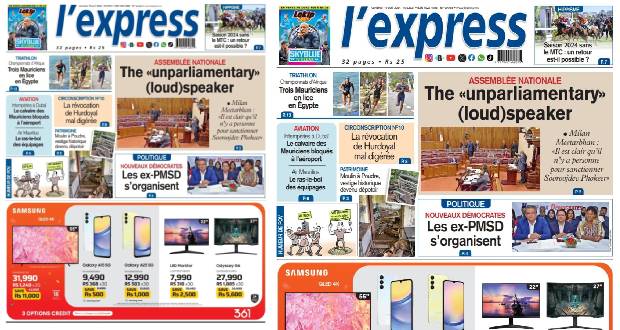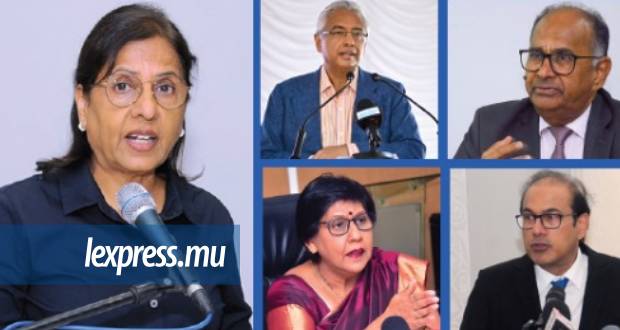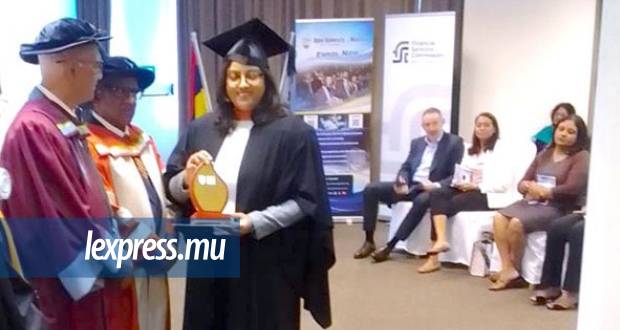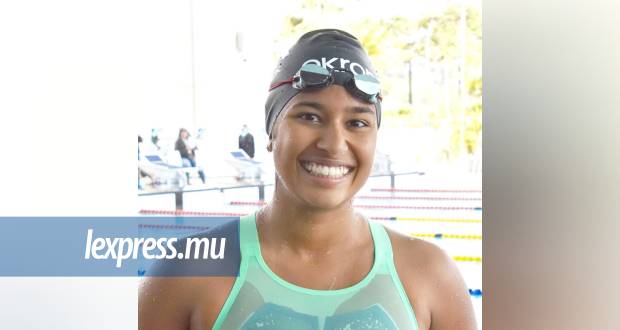Publicité
Sivakumaren Mardemootoo : «The UK concealed documents to the Chagossians »
Par
Partager cet article
Sivakumaren Mardemootoo : «The UK concealed documents to the Chagossians »
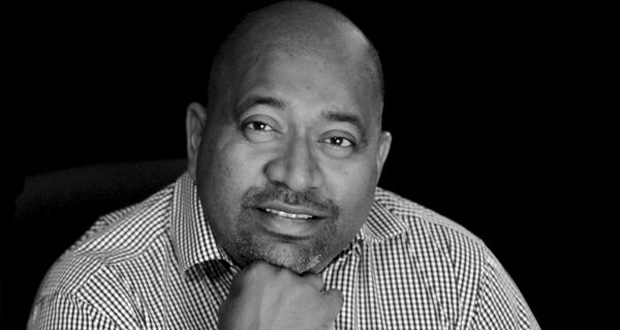
The attorney for the Chagossians speaks about the trial that took place in London on Monday. His clients are appealing against the judgment given in 2008 that barred them from returning to their home land, several documents having been kept secret by the British.
Mr Mardemootoo, the Chagossians have a case before the House of Lords on Monday 22 June in London. What is this about ?
The Chagossians are asking the House of Lords, now known as the Supreme Court of the United Kingdom, to set aside its own judgment dated 22 October 2008 on grounds of material non-disclosure by the UK Government of relevant documentary information in its possession during the previous legal proceedings, in breach of the UK Government’s duty of candour in public law proceedings. The application is made because the UK Government’s breach was one which is highly likely to have affected the outcome of the appeal which the Chagossians lost in 2008.
Can you very briefly put us in the context by summarizing the various court cases lodged by the Chagossians and the judgments obtained, so that our readers could understand the present situation ?
Olivier Bancoult came to see Richard Gifford and myself in 1998 on behalf of a small group of islanders who wanted to go back to the Chagos. We advised him that they could not go there because the British Police, which control the islands, would forbid them from stepping on the islands under the provisions of the BIOT Immigration Ordinance of 1971 which restricted access to the islands. We therefore advised that the first step would be to attack that Ordinance and get it declared illegal. Which we did, and on the 3rd November 2000, the Court ruled in our favour by quashing the said Ordinance on the ground that the exclusion of an entire population from its homeland was unlawful. The Court also recognized that the Chagossians had a right of abode on the islands. Interestingly, Robin Cook was the then Foreign Secretary and instead of appealing, he accepted the judgment and declared that he would take steps to allow the Chagossians back on the islands.
Four years later, in the aftermaths of 9/11, the UK Government decided to overturn the Court’s judgment by formally abolishing the right of abode in the Chagos Islands and reintroduce access controls on the islands. We learned later that Donald Rumsfeld was behind this. This was done by two Orders in Council, which is law made by the Queen as opposed to law made by Parliament.
I got a call from Richard Gifford in London at 2pm announcing me this; one hour later, Olivier Bancoult was in my office giving us instructions to research the possibility of challenging the said Orders in Council. Pour la petite histoire, there had never been any challenge against any Order in Council passed for an overseas UK territory and this was going to be the first one…
We lodged a Judicial Review application challenging the Orders in Council. In 2006, the Court ruled in our favour on the ground that the Orders (made by the Queen !) were not rational because their rationality had to be judged by the interests of BIOT, meaning the people who lived or used to live on BIOT, not the interest of the United Kingdom and the United States. That was a massive victory…
The UK Government appealed. The Court of Appeal unanimously ruled in our favour and dismissed the appeal in 2008. The Court said that Robin Cook’s declaration gave rise to a legitimate expectation on the part of the islanders that they would be allowed back. Another massive victory …
The UK Government appealed further to the House of Lords. And this is where we lost, 3 law lords were against us, 2 law lords were for us. And this is the judgment we are challenging on Monday.
We comforted ourselves with the fact that the presiding judge, Lord Bingham, known as one of the brightest judges England ever produced, and Lord Mance were for us. But we knew something was wrong, somewhere. You cant win unanimously before the High Court, unanimously before the Court of Appeal and then lose 3/2 with Lord Bingham ruling for us. That was not normal.
We did not know that you could appeal against a House of Lords judgment in England. Can you explain ?
We are not appealing against a House of Lords judgment. We are telling the House of Lords that the UK Government concealed documents, which, if they were placed before the House of Lords during the hearing, the judgment would have been different. Therefore, we are asking the House of Lords to set aside its own judgment.
What was wrong with the judgment ?
The main issue before the House of Lords was whether the UK Government’s decision, that no re-settlement on the islands would be allowed because of the alleged precariousness of re-settlement and its alleged prohibitive cost, was rational or not. The majority of the law lords, 3/2, ruled that based on an “independent” feasibility study which the UK Government had commissioned and produced in Court, the re-settlement would be precarious and cost prohibitive, the decision to ban resettlement was rational.
The 3 law lords who ruled against us heavily relied on the said feasibility study in their determination and this is seen all through the judgment. A lot of weight was given to the said feasibility study and the 3 law lords used that feasibility study to conclude that the UK Government’s decision to ban resettlement was therefore rational and lawful, contrary to what the High Court and the Court of Appeal had found.
Here is the problem:
· Since the beginning, i.e. at the time of the case before the High Court, we had asked, repeatedly, for disclosure of documents relating to the feasibility study. In fact, as early as 2003, we had requested to see what comments did the FCO’s scientific advisers on the said feasibility study. We were told, by way of a letter dated 13 December 2005, that “no drafts of the Phase 2B Report could be traced”;
· During the hearing before the High Court, on at least 4 occasions, the Court asked Counsel for the UK Government whether there had been full disclosure of all relevant documents and Counsel confirmed that all relevant documents demonstrating that resettlement of the Chagos Islands is not feasible have been produced and communicated.
· During the appeal before the Court of Appeal, Counsel for the UK Government was again asked the same thing and he came up with the same answer.
· In fact, all this was false. Contrary to the repeated denials by the UK Government, there was at all material times a substantial file of relevant documents that was being held by the UK Government. That file contained the feasibility study as well as comments made by the principal scientific adviser of the UK Government itself, which comments were devastatingly critical of the quality of the study. We found out the truth when the UK Government’s legal team communicated it to us on the 1st May 2012 in the course of proceedings we had started under the freedom of information principle. We had always found it suspicious that they had no file to communicate, so we forced our way.
· The material in these documents provides many grounds for challenging the reliability of the feasibility study and these grounds, according to us, are key to assessing the importance of the UK Government’s non-disclosure and conduct during our legal proceedings.
o First of all, these documents establish that the study was not “independent” as alleged by the UK Government; the file contains evidence of extensive alteration brought to the report to reflect the FCO’s views;
o Secondly, the file also contained extensive criticism of the report made by the FCO’s own scientific adviser, along the lines of our own conclusions;
o Thirdly, the documents show that the study was altered between the draft and the final version in a manner which conflates and distorts the original finding of the consultants in relation to storms creating difficulties for resettlement; and
o Fourthly, the documents reveal evidence of an amazing lack of objectivity in Dr Sheppard’s input in the study.
· Our case today is that had these documents been disclosed before or during the litigation, we would have challenged the reliability of the feasibility study in the litigation and it is highly likely that such challenge would have led to a different decision by the House of Lords on the issue of rationality of the decision to abandon the planned resettlement of the islands in the light of the findings of the feasibility study.
The contents of the documents concealed and finally disclosed are such that disclosure of these documents requested by us and refused by the UK Government was obviously necessary to resolve the case fairly and justly. The UK Government was therefore under a strict duty to disclose those documents.
We submit today in our case that a defendant public authority and its lawyers are under a vital duty to make full and fair disclosure of relevant material. Coincidentally, we cite Lord Justice Laws, the same judge who ruled in our favouron 3rd November 2000, in his famous Quark Fishing judgment where he says that “there is a very high duty on public authority respondents and central government to assist the court with full and accurate explanations of all the facts relevant to the issue which the court must decide”. We submit that the extent od that duty extends to “materials which are reasonably required for the court to arrive at an accurate decision”.
We do realize that our application to set aside a House of Lords judgments on grounds of breach of the Defendant’s duty of candour is unprecedented. However, we are satisfied that the House of Lords had and therefore the new Supreme Court has the power to set aside its own judgment in order to correct an injustice caused by an earlier Order in exceptional circumstances.
All of this must have required massive work. How do you guys do this ?
You cannot imagine how much work all this represents. You have no idea. Millions of emails and hundred of thousand of hours in research. We have a large team of lawyers in London, Washington D.C and Mauritius to work on all those issues. The lawyers in charge of this application on Monday are Clifford Chance in London; the barristers are Ed Fitzerald QC and Amal Clooney, the wife of George Clooney. One or two of these London lawyers are paid a symbolic fee by Legal Aid, but all of the others work for free on a pro-bono basis.
Olivier Bancoult is someone extraordinarily strong and determined. I have no doubt that his dream of bringing his people back there will come true one day. And Mauritius will come out the winner at the end of the day.
Publicité
Les plus récents
